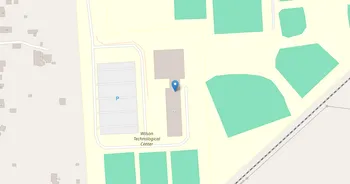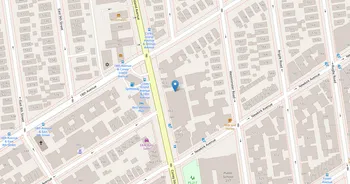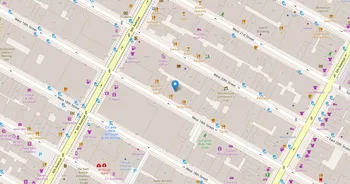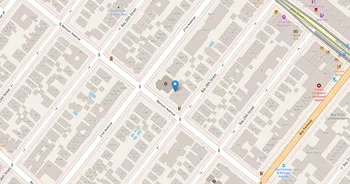Yeshiva D'monsey Rabbinical College : Overview, Courses, Scholarships & Rankings
About Yeshiva D'monsey Rabbinical College
Tucked into Monsey's tight knit community, Yeshiva D'monsey Rabbinical College is known for rigorous text study, steady chavruta learning, and thoughtful guidance from experienced rabbinic mentors. The beit midrash and a well used library of sefarim anchor the day, with prayer spaces, quiet study rooms, and straightforward student services like advising and tutoring that keep the focus on learning.
Campus life moves to the cadence of the Jewish calendar. Students join shiurim, informal night study, and communal meals, and they find opportunities with local schools and synagogues. Nearby parks offer space to clear the head, and a pickup game or long walk isn't hard to find. Career preparation grows through mentorship and real community connections, especially toward education and communal leadership. The atmosphere feels purpose driven, respectful, and warm, with spirited debate alongside genuine camaraderie.
Key Institutional Details
Contact & Profile
Academic & Institutional
Academic Programs & Fields of Study
Yeshiva D'monsey Rabbinical College offers 1 degree programs across 1 major academic fields, graduating approximately 15 students annually. The most popular fields by graduate volume are Philosophy (1 programs, 15 graduates). Explore program details, award levels, and graduate demographics below.
Philosophy (1 programs, 15 graduates)
Philosophical Studies, Ethics and Religious Thought
| Program Name | Graduates | Gender Distribution | Award Levels | CIP Code |
|---|---|---|---|---|
| Talmudic Studies | 15 |
|
Bachelor's
|
38.0207 |
Admission Requirements & Test Scores
Comprehensive overview of admission criteria, standardized test score ranges, and application requirements for prospective students at Yeshiva D'monsey Rabbinical College.
Application Requirements
Data based on IPEDS for 2022-2023 academic year. Test score ranges represent the middle 50% of admitted students (25th-75th percentile). Requirements may vary by program.
Tuition, Fees & Estimated Costs
Overview of tuition rates, housing, and other annual education expenses for undergraduate and graduate students
Financial Aid & Student Support
Summary of scholarships, grants, student loans, and financial aid statistics for undergraduate students
Student Success Metrics
Graduation rates and post-graduation earnings to help assess student outcomes and long-term value of education.
Loan Burden & Repayment Outcomes
Breakdown of loan repayment rates and student debt levels by income and dependency status.
Frequently Asked Questions
Find answers to the most common questions about Yeshiva D'monsey Rabbinical College
How much does it cost to attend Yeshiva D'monsey Rabbinical College?
The annual tuition at Yeshiva D'monsey Rabbinical College is $9,200 for in-state students. When including room and board, books, and other expenses, the total estimated cost is approximately $20,600 for in-state students. Additional costs include room and board $5,100 (on) / $16,250 (off) and books and supplies $300.
Data based on IPEDS program completions for 2022-2023 academic year. Tuition and cost estimates are approximate and may not include all fees, personal expenses, or transportation costs.
What academic programs and degree levels does Yeshiva D'monsey Rabbinical College offer?
Yeshiva D'monsey Rabbinical College offers 1 academic programs across 1 major fields of study, with available degree levels: Bachelor's.
Most popular program areas include:
- Philosophical Studies, Ethics and Religious Thought (1 programs)
Data based on IPEDS program completions for 2023-2024 academic year. Numbers reflect programs where students graduated, not all offered programs.
What is the acceptance rate for Yeshiva D'monsey Rabbinical College?
Yeshiva D'monsey Rabbinical College has an 42.3% acceptance rate and a 100% yield rate, making it highly selective.
Admission statistics breakdown:
- Total applicants: 78
- Students admitted: 33
- Students enrolled: 33
Data based on IPEDS for 2022-2023 academic year. Admission statistics may vary by program and application cycle.
What financial aid and scholarships are available at Yeshiva D'monsey Rabbinical College?
Yeshiva D'monsey Rabbinical College provides financial aid to 29% of first-time, full-time students, with average grants of $11,434 and average loans of $0.
Average financial aid amounts by type:
- Pell grants: $6,621
- State/Local grants: $4,310
- Institutional grants: $2,494
The university supports 17 students with grants and 0 students with loans annually.
Data based on IPEDS for 2022-2023 academic year. Financial aid amounts and percentages may vary by program, enrollment status, and individual circumstances.
Related Universities




Found something useful? Help others discover it too! Share with friends, on social media, or save for later - every share helps someone find the information they need.